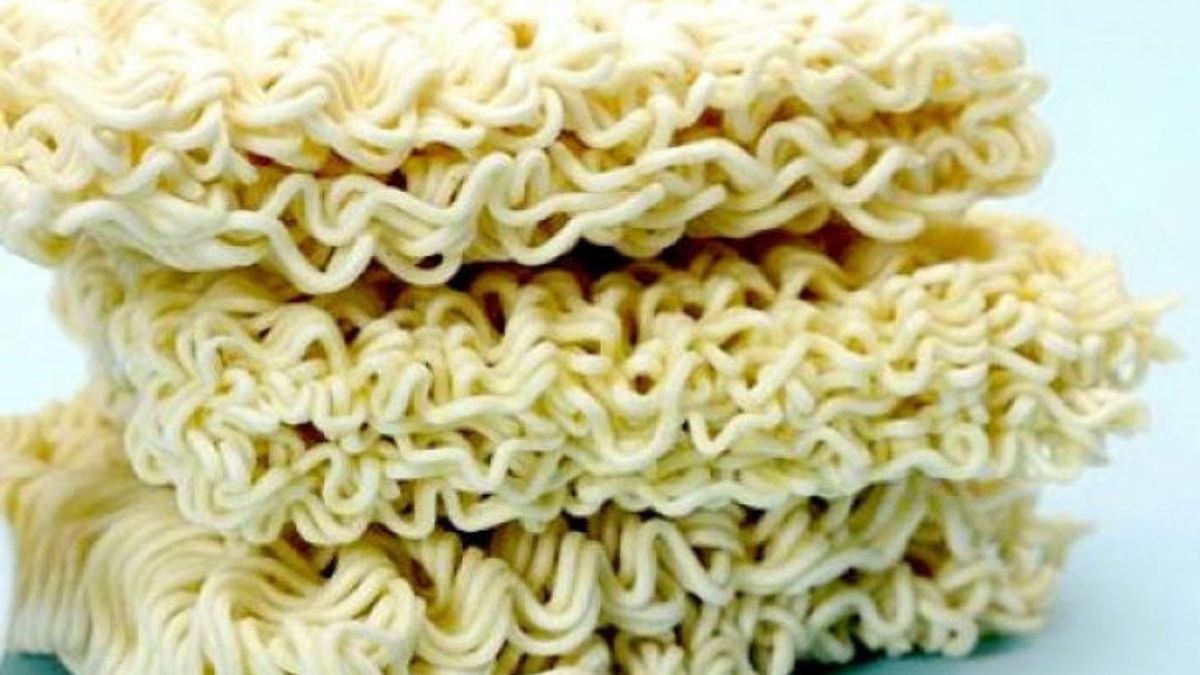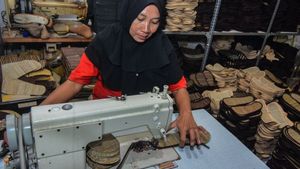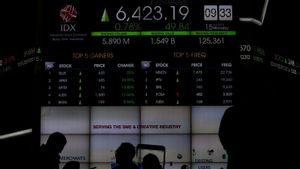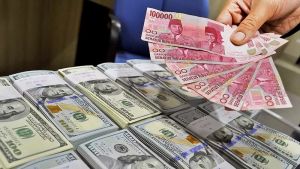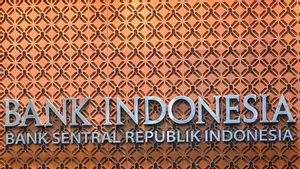JAKARTA - The issue of an increase in the price of instant noodles three times has recently been widely discussed.
The Ministry of Agriculture (Kementan) asks the public and food industry players to continue to be vigilant against the potential for a global food crisis.
Head of the Ministry of Agriculture's Public Relations and Public Information Bureau, Kuntoro Boga Andri, said his party responded positively to the statement of one of the wheat-based processed food industry players who said that the price increase of processed food products would not be significant.
"The government, including the Ministry of Agriculture, hopes that all food industry players will continue to be committed to maintaining the prices of their products," he said in a written statement, Thursday, August 11.
Kuntoro added that Indonesia's condition is still relatively safe. Where the availability of strategic food commodities is still guaranteed and prices are relatively stable.
"The potential for food raw materials that can increase many times, of course, needs to be watched out for, because the impact will be very detrimental to the community," he said.
Even so, said Kuntoro, the government will continue to prioritize vigilance and seek preventive measures so that national food availability is maintained. Moreover, the Ukraine-Russia war that never ends.
This includes climate change, and the COVID-19 pandemic which is not yet fully over, causing a trend among food production center countries to start restricting exports to other countries.
Therefore, Kuntoro continued, although wheat is not the main food commodity, the demand for wheat in Indonesia is very high.
Even though wheat is not a native product of Indonesia and is difficult to cultivate. So that the need for wheat is still supplied by imports.
Based on the 2019 BPS, said Kuntoro, the consumption of wheat per capita of the Indonesian population is 30.5 kg per year.
In comparison, the staple food of the Indonesian population is rice, the consumption of the Indonesian population per capita is 27 kg per year.
The largest demand for wheat is for the processed food product industry, such as instant noodles, cakes, and bread.
Throughout June 2022, the International Food Policy Research Institute (IFPRI) said that there were various export restriction policies in several countries, either in the form of bans, permits, and or export taxes.
Kuntoro said, one of the restricted commodities is wheat. A number of wheat-producing countries, such as Russia, India, Serbia, Egypt, Afghanistan, Kazakhstan, Kyrgyzstan, and Kosovo, issued restriction policies.
This step was taken to maintain food stability in their respective countries.
Kuntoro said the Russian-Ukrainian conflict could still affect the Indonesian wheat market, because the total food products imported from both countries (Russia and Ukraine) in 2021 amounted to 956 million US dollars, of which 98 percent of it is wheat.
Moreover, Indonesia is the second country with the highest import value of wheat in the world, considering that wheat is difficult to grow. The total import value is 2.6 billion US dollars (5.4 percent of total world wheat imports) in 2020.
“The Russo-Ukrainian war also greatly affected the supply of wheat for global needs. According to the FAO report, about 50 countries depend on about 30 percent of their wheat imports from Russia and Ukraine,” said Kuntoro.
The English, Chinese, Japanese, Arabic, and French versions are automatically generated by the AI. So there may still be inaccuracies in translating, please always see Indonesian as our main language. (system supported by DigitalSiber.id)
